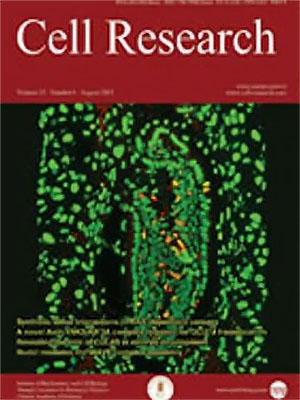Volume 4 Issue 1, June 1994: 17-29
ORIGINAL ARTICLES
Human immune suppression is inducible by trichosanthin via CD8 cell-mediated pathway
Chou KuangYen, DongQing Zhang, BaoHua Xue
Shanghai Institute of Immunology, Shanghai Second Medical University, Shanghai 2005,China
Correspondence: Chou KuangYen
Thichosanthin(Tk), a polypeptide with 249 amino acid residues isolated and purified from a Chinese medicinal herb, showed the capability of inducing abortion and was able to inhibit tumor growth and HIV replication. Owing to sequence homology of the peptide with a ribosomeinactivating protein, the downward activity of Tk was suggested to be related to its cytotoxic property. We report here, however, that Tk could exert potent inhibitory effects on human lymphoproliferative responses in vitro to allogeneic, mitogenic and soluble antigens with 50% inhibition doses ranged between 0.05 and 0.5 μg/ml. The lowresponsiveness caused by Tk was not due to toxic cytolysis. Rather, evidences suggested that, in the dose range adopted, the Tk-induced inhibition was attributable, at least in part, to immune suppression, in view of (1) Tk was more effective in the early stage of alloreactivity; (2)Suppression also occurred if responder cells were pulsetreated with Tk rather than cocultured; (3) Irradiated Tk-pulsed cells were capable of inducing suppression in a Tk-free culture;(4) Suppression could also be transfered by the supernatants of Tk-pulsed cultured cells; (5) Tk-induced immune suppression was diminished by depletion of CD8+ cells from the culture, and, finally; (6) Adding CD8+ cells back to the culture could restore the suppression.Thus the possibility that Tk might function as a down-regulator by immunological mechanisms in human immune responses is discussed.
FULL TEXT | PDF
Browse 2423


